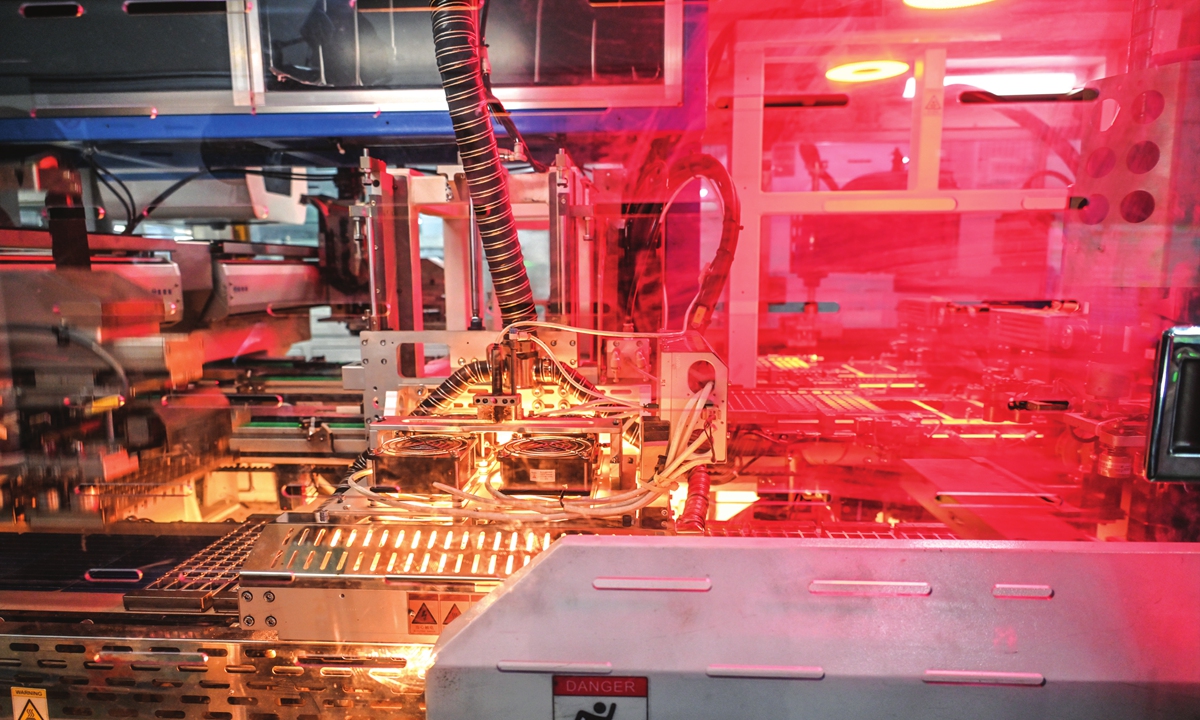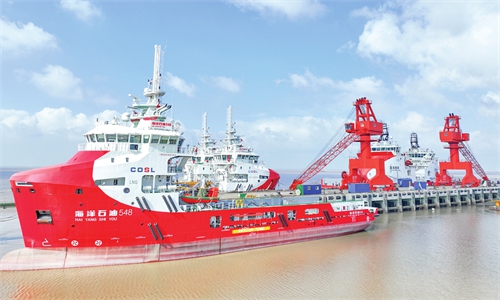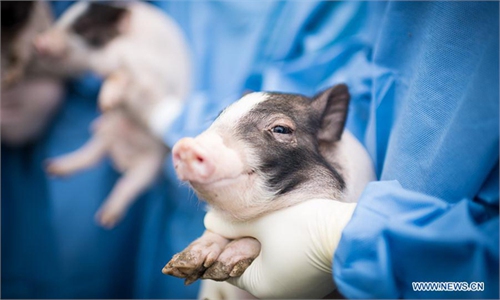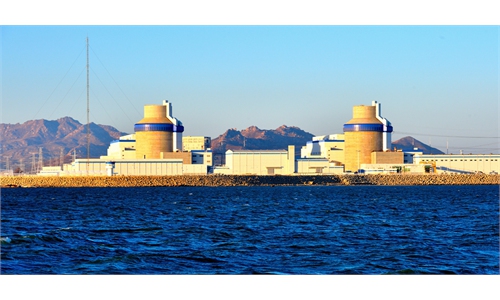
A solar technology production line in Shanghai Photo: IC
China's strength and self-reliance in science and technology and modernization of the industrial system are among the country's priorities in 2023, as showed in the Government Work Report published on Sunday. Policies will focus on core technology breakthroughs and the upgrading of industrial chains.
Scientific and technological policies should aim at building up China's strength and self-reliance in science and technology, read the recommendations for the work of the government in 2023 in the report.
"The new system for mobilizing resources nationwide should be improved, (and) we should better leverage the role of the government in pooling resources to make key technological breakthroughs, and enterprises should be the principal actors in innovation," said Premier Li Keqiang on Sunday, who delivered the government work report on behalf of the State Council at the opening meeting of the first session of the 14th National People's Congress.
China should promote the transformation and upgrading of traditional industries, cultivate and strengthen strategic emerging industries, and take forceful steps to shore up weak links in industrial chains, said Li.
The government should, with a focus on key industrial chains in the manufacturing sector, pool quality resources and make concerted efforts to achieve breakthroughs in core technologies in key fields, read the report.
"We should speed up the digitalization of traditional industries and small- and medium-sized enterprises to make them higher-end, smarter, and more eco-friendly. Research and development (R&D) and application of cutting-edge technologies should be accelerated. We should strive to develop the digital economy, step up regular oversight, and support the development of the platform economy," said Li.
According to Li, in the past five years, China promoted development of the real economy through innovation, continued to foster new drivers of growth, and effectively countered external attempts to suppress and contain China's development.
Sci-tech innovation is a primary productive force and key to China's future development, Zhang Xiaorong, director of the Beijing-based Cutting-Edge Technology Research Institute, told the Global Times on Sunday.
There are still challenges facing China to achieve self-reliance in sci-tech. For instance, China still faces some bottlenecks in major technologies, such as chips, lithography machines and materials, Wang Peng, a research fellow at the Beijing Academy of Social Sciences, told the Global Times on Sunday.
As a result, how to better and more effectively integrate sci-tech innovation and industries is another major challenge, said Wang.
"More investment should be injected in basic technological R&D. The core of scientific and technological innovation lies in human resources. China should focus on training talent," said Wang.
Zhang also said that China should strengthen intellectual property protection and pool the resources of the whole society to make breakthroughs in key areas that address the national economy and people's livelihoods.
Wang Zhigang, minister of technology, said on Sunday in the ministers' passage at the two sessions that the dominant position of enterprises in sci-tech innovation should be strengthened.
"In the next step, we will strengthen the market's drive and conduct basic research that can be used in practical ways," said the minister.
Although efforts and time are needed to achieve self-reliance in sci-tech for China, analysts said that the country has made remarkable progress and achievements in recent years.
Achievements of sci-tech innovation have emerged, such as in artificial intelligence, biomedicine, algorithmic computing power and some key projects, such as large aircraft, said Wang Peng.
Premier Li also said that China has fully implemented the innovation-driven development strategy and improved and upgraded the industrial structure. The country has provided support for basic research and applied basic research, with spending on basic research doubling over the past five years.
For four years in a row, basic research accounted for more than 6 percent of China's R&D investment, growing at a faster rate than that of the overall R&D, official statistics showed.
"We sped up the development of emerging industries like high-end equipment, biomedicine, new-energy vehicles, photovoltaic power and wind power. Continued efforts were made to provide faster broadband speeds and lower internet rates, and Internet Plus initiatives were boosted," said Li.



